Panamanian Jade Manor what's the difference between Panamanian Rosa Coffee beans, Rose Summer Red, Green and Blue?
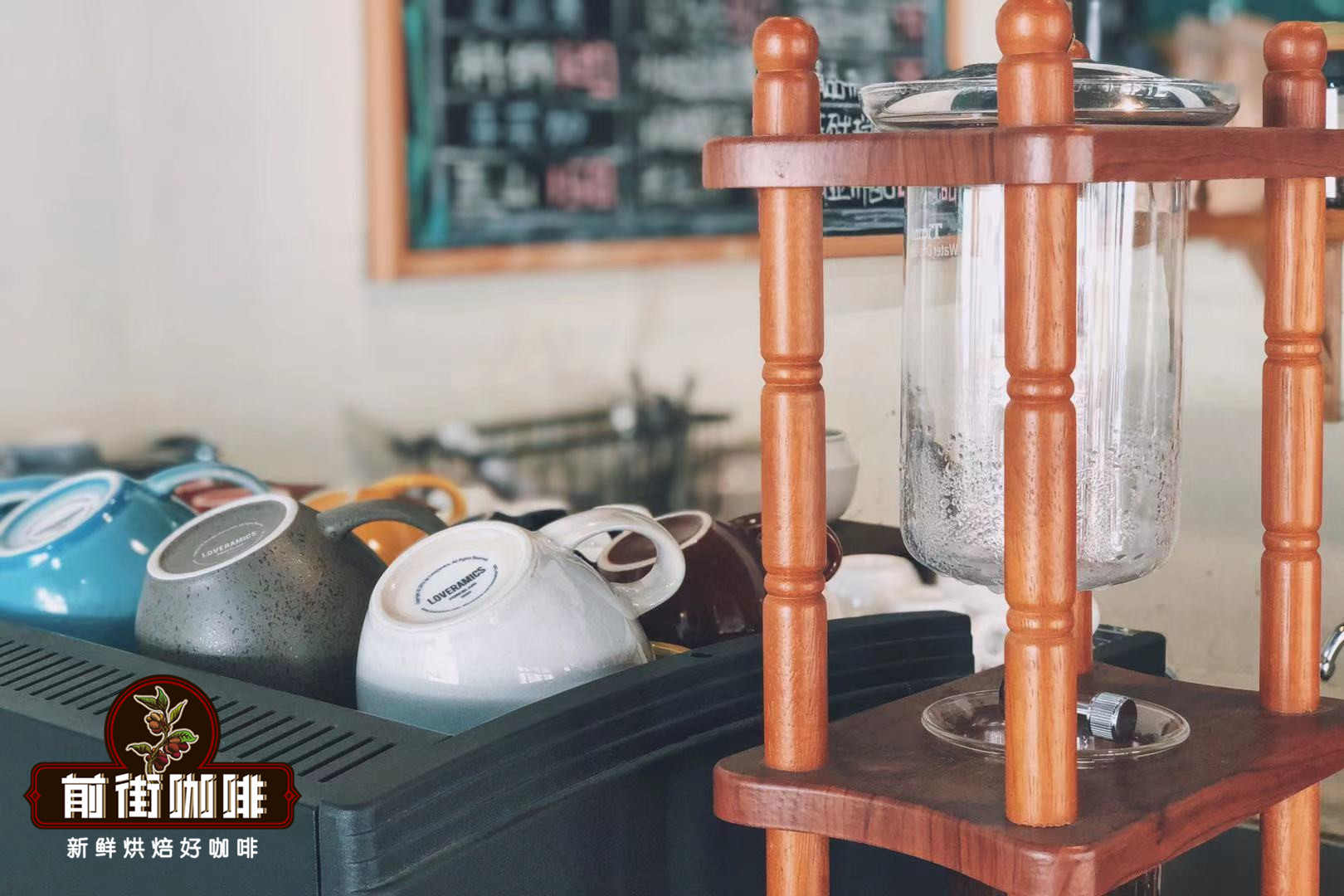
Professional coffee knowledge exchange more coffee bean information please follow the coffee workshop (Wechat official account cafe_style)
Speaking of rose summer, I have to mention Panama's jadeite manor rose summer series, Qianjie coffee has just entered a batch of 2020 new production season of jadeite manor blue label rose summer. The grading system of rose summer in jadeite manor is a model for many manors to learn. There are three grades of rose summer varieties alone, and the flavor is also different. Many people are not very clear about the three grades of rose summer in jadeite manor. Qianjie Coffee feels that there is nothing to be confused about sorting out the classification ideas of Panamanian jadeite manor. Qianjie Coffee summarizes the most obvious differences among red standard rose summer coffee, green standard rose summer coffee and blue standard rose summer coffee, that is, the planting altitude is different and whether the mixed bean model is adopted or not. the one with high altitude (1600-1800 meters) and clear information about planting plots is red-marked rose coffee, and the mixed beans at the same altitude as red-marked rose summer coffee is green-marked rose coffee. finally, the lower altitude (1400-1500 meters) is the blue label Rosa coffee.
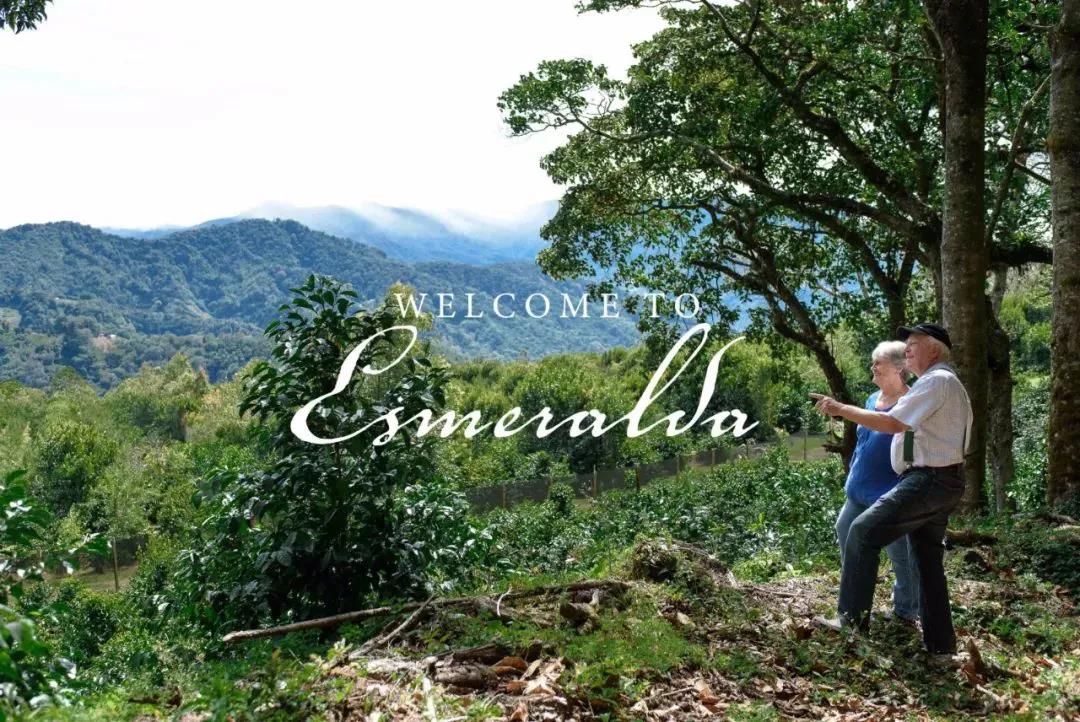
Panamanian Jade Manor
Panama is located in Central America, followed by North and South America, bordering Costa Rica and Colombia. The coffee road in Panama can be said to have come all the way with a golden spoon.
As we all know, the Panama Canal was built by the United States and was independently controlled by the United States for some time after it was built. It was the construction of the Panama Canal that caused many American elites to go south at the end of the 20th century, on the one hand, to demand jobs, and on the other to tap business opportunities.
The Emerald Manor is the witness of that era. In 1964, Rudolph Peterson, an American banker, retired, moved to Panama and bought the emerald estate in Poquet, initially dominated by dairy. Then his son Price resigned as a doctor to help his father run the farm, introduced Kaddura and Kaduai coffee beans in 1987, set up a washing plant in 1994, and has had its own coffee processing plant ever since. In 1996, we bought the Jhala Miyou Manor, which has a superior geographical environment and good flavor of the original coffee varieties, and merged it into the Jadeite Manor.
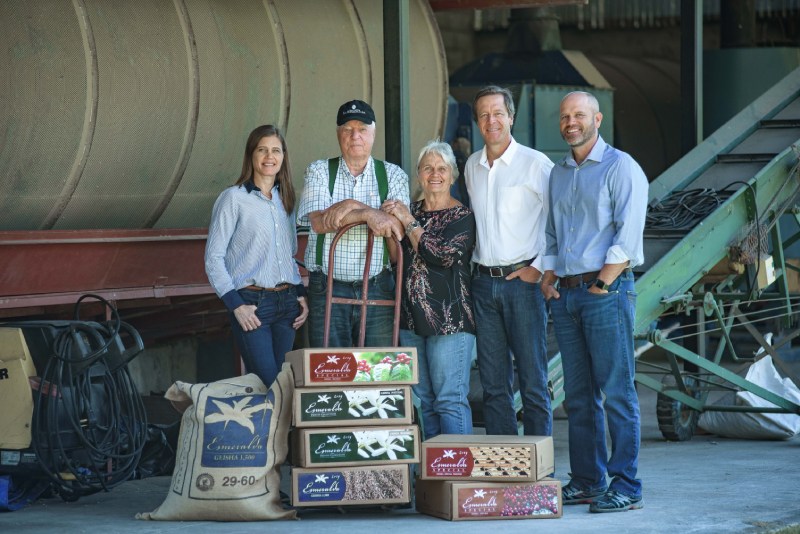
Jhala Miyou Manor is favored by the Petersons because of its original coffee beans, with pleasant aromas of orange and fruit, different from the original flavor of Panamanian coffee. After cup testing of coffee beans in different areas of the garden, it was found that it was an unknown coffee tree born at the top of the manor. because of its low yield, the previous owner only used it as a windbreak tree, but it was excavated by the Petersons and decided to plant and cultivate the coffee trees in the area independently.
After winning the championship of BOP in the Panamanian bean competition in 2004, it was later identified by experts that the coffee bean was a rose summer variety of Ethiopia. Since then, the Peterson family has focused most of its efforts on developing infrastructure to support excellent batch separation and fine processing.
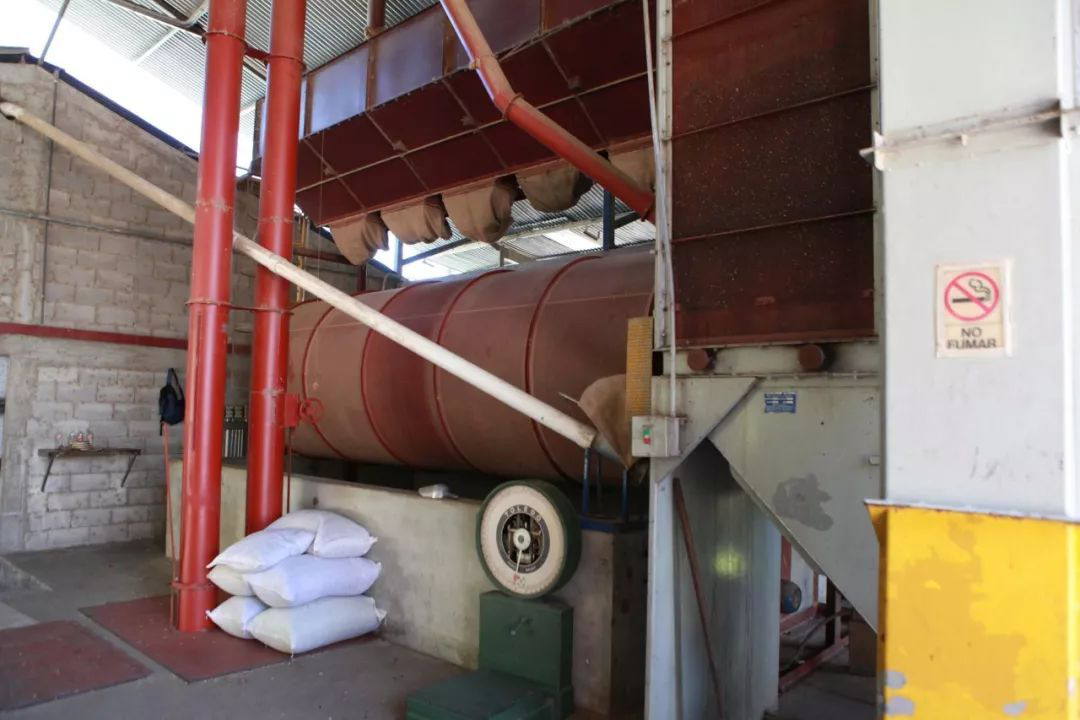
Land division of jadeite manor
Emerald Manor is located in the Pokuit producing area of Panama, which is an important coffee producing area in Panama, and many familiar coffee estates come from this area, such as Alida Manor, Catova Manor and so on.
The jadeite manor is finely divided into three plots: Jaramillo, Caas Verdes and El Velo. Each piece of land will be refined to small plots again.
High-quality Rosa rugosa is mainly produced in two plots: Jaramillo and Caas Verdess.
The annual rainfall of Jaramillo is 4000ml, the average temperature in daytime is 19-25 ℃, the average temperature at night is 11-15 ℃, and the average altitude is 1600-1700m. The Haramiyo site is subdivided into five small plots: Mario (Mario), Noria (Ferris wheel), Reina (queen), Bosque (forest) and Buenos Aires (Buenos Aires).
The annual rainfall of Caas Verdess is 3500ml, the average temperature in daytime is 16-23 ℃, the average temperature at night is 10-15 ℃, and the average altitude is 1600-1800m. Cannes consists of nine small plots: Lino (flax), Coronado (coronation), Fundador (founder), Le ó n (Leon), Montaa (peak), Trapiche (sugar), Chinta (urn), Cabaa (cabin) and Tumaco (Tumako).
Veil (El Velo) is the latest purchase of the Jadeite Manor, with an average elevation of 1700-1900m. In addition to planting Rosa and Kaduai, the site also has a small number of other exotic species, such as Laurina, Pakamara, Mocha and SL28. The veil is divided into seven small plots, namely: Guabo, Port ó n (Portal), Durazno (Peach), Higuer ó n (fig tree), Higo (fig), Buena Vista (Buena Vista) and guila (Eagle).
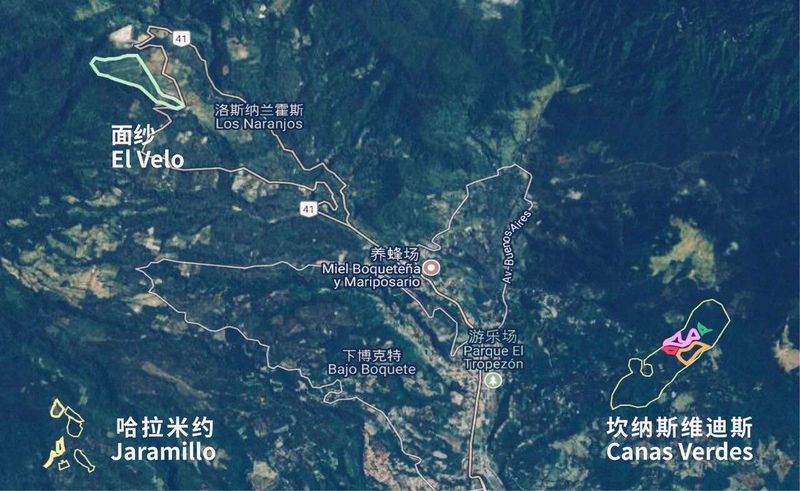
Rose summer red mark, green mark, blue mark
The marketing strategy of Jadeite Manor is different from that of other manors. according to the cup test performance and the varieties and plots planted, it is divided into five brands. There are three brands of Rosa varieties: jadeite Special selection (Esmeralda Special), Private Collection (Private Collection) and Rose Summer 1500 (Geisha1500). Kaduai has two brands: Diamond Hill (Diamond Mountain grows) and Pamela (Palmyra).
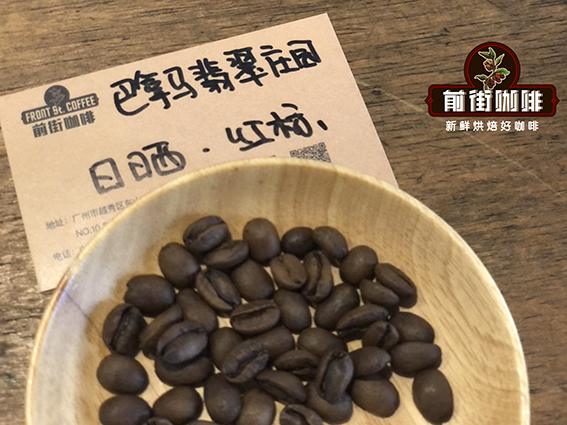
Red label Rose Summer
The rosy summer specially selected by jadeite is the red sign we often hear. The rose beans, which are planted at 1600-1800 meters above sea level and with a cup test score of more than 90 points, are produced in two producing areas of Haramiyo (Jaramillo) and Canas Vidis (Caas Verdess).
The independent bidding held by the Emerald Manor itself, in the divided plots, the Rose Summer batch that was put forward for bidding is the red bid, and the price is high. Qianjie coffee is often met with guests who ask our store if the red bid is a competitive red bid. As mentioned earlier, the bidding price is high and the quantity is small. If the red bid for a cup of 75 yuan in the store is competitive grade, it is really a treasure. But then again, the red mark on the market is to select the unbidding rose in the same plot and then circulate it to the market. the variety and quality are the same, but there is a difference in the price.
This grade of rose summer is treated in the sun or water, with special, bright floral and citrus aromas.
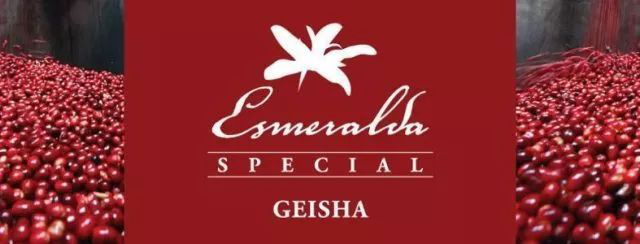
Green label Rose Summer
Private collection, commonly known as green standard, is not a batch of independent competitions, planting rose summer varieties that do not participate in bidding but are still of excellent quality. Micro-batch mixed beans from different plots such as Jaramillo and Caas Verdess were planted at 1600-1800 meters above sea level.
Due to the use of mixed bean mode, there is no detailed indication on the plot, Qianjie coffee will test on a batch with a high similarity between the green mark and the red mark, but this situation is not guaranteed to be the same every time, and the next product may be different.
Although the green standard is not as high as the red standard, it still has the classic flavor of Rose Summer, floral, fruity, sour citrus, thick and juicy taste. The green sign of rose summer is also washed or tanned.

Blue label Rose Summer
Rose summer 1500 this brand is our common blue standard rose summer. Select mixed beans from three different plots, namely, Jaramillo, Caas Verdess and El Velo, which are 1400-1500 meters above sea level. The flavor is slightly floral, sour and sweet, and the taste is not thick. Blue standard rose summer is only washed, but new sun-treated coffee beans were added in 2020.

Recently, Qianjie Coffee purchased the blue standard raw beans for the 2020 season. In order to confirm whether the flavor is different from the previous batch, Qianjie Coffee has undergone several roasting adjustments and cup tests.
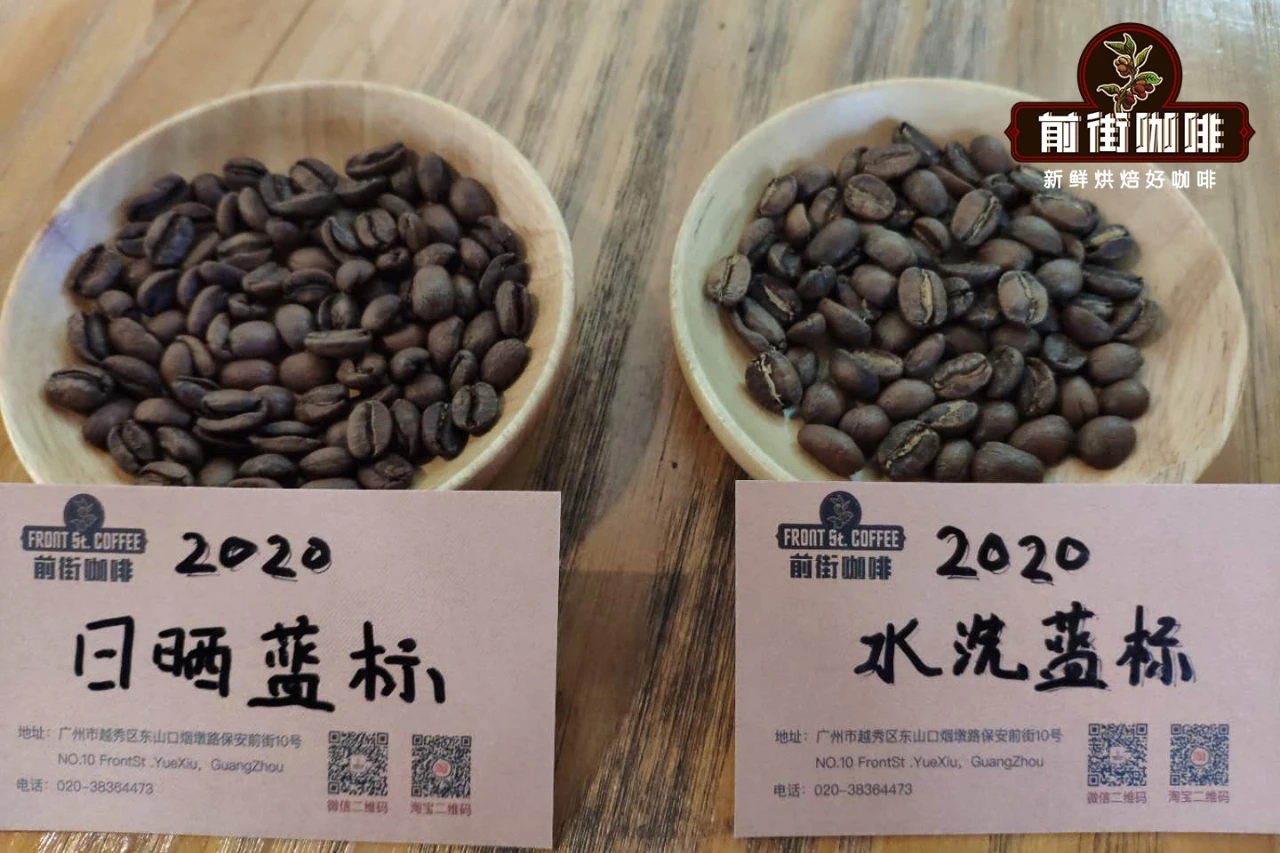
Take the red, green and blue marks of Qianjie Coffee Jade Manor as an example.
Grade
Red mark
Green label
Blue mark
Altitude
1909-2069m
1600-1800m
1500m
Treatment method
Insolation
Water washing
Water washing
Baking degree
Shallow baking
Shallow baking
Shallow baking
Baking suggestion
The jadeite manor is rosy in summer, full in shape, thick and long, with sharp ends at both ends. Qianjie coffee is roasted lightly in order to highlight its flower and fruit aroma and bright acidity. However, it should be noted that even if they are of the same rose summer variety, Qianjie coffee has different parameters in roasting red, green and blue marks, which requires the roaster's accumulated experience to judge the uniqueness of each bean.
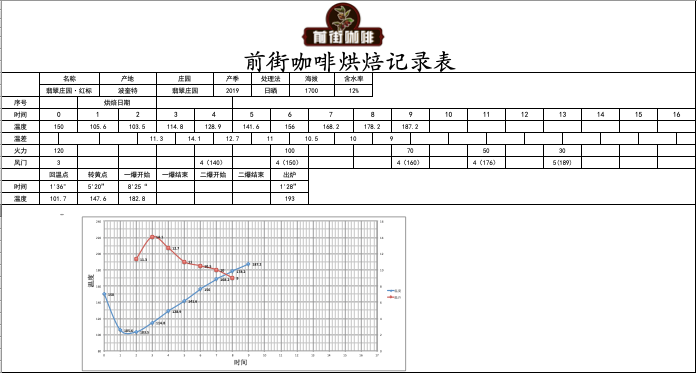
Qianjie Coffee Panamanian Jade Manor Red Standard Rosa Coffee Bean Baking Curve
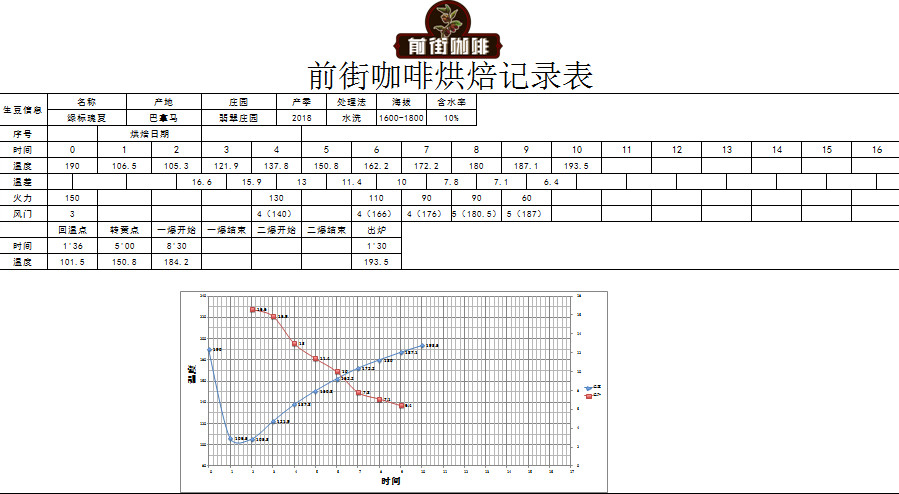
Qianjie Coffee Panamanian Jade Manor Green label Rosa Coffee Bean Baking Curve
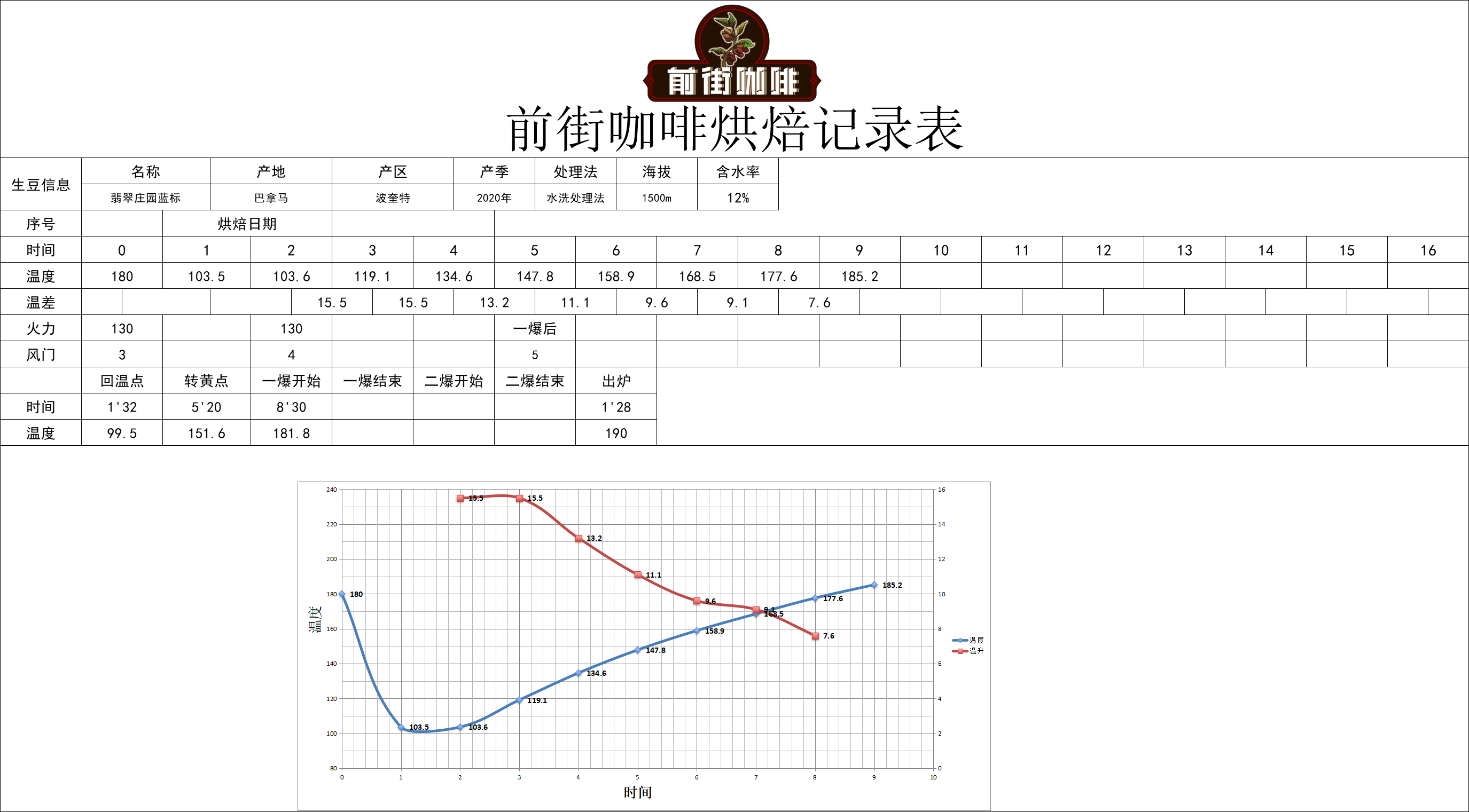
Qianjie Coffee Panamanian Jade Manor Blue label Rosa Coffee Bean Baking Curve
Cooking suggestion
The recommended brewing parameters for Qianjie coffee are: Hario V60 filter cup, 90 ℃ water temperature, 15 g powder quantity, 1:15 powder-water ratio, grindability BG#4Q (the pass rate of Chinese standard No. 20 sieve is 80%).
Here, Qianjie coffee should be mentioned, why should it be screened before determining the degree of grinding? in fact, this is the grinding advice provided by the American Fine Coffee Association SCA for hand-brewed coffee. Qianjie coffee has been widely verified and brewed with different degrees of grinding, and there is a significant gap in the finished products, and the degree of grinding of each type of coffee beans will be different, which is the meaning of sifting. If you don't have a sieve at home, Qianjie Coffee suggests observing the speed of the water to judge that if the flow is too fast, it is coarse, and if the flow is too slow, it is fine.
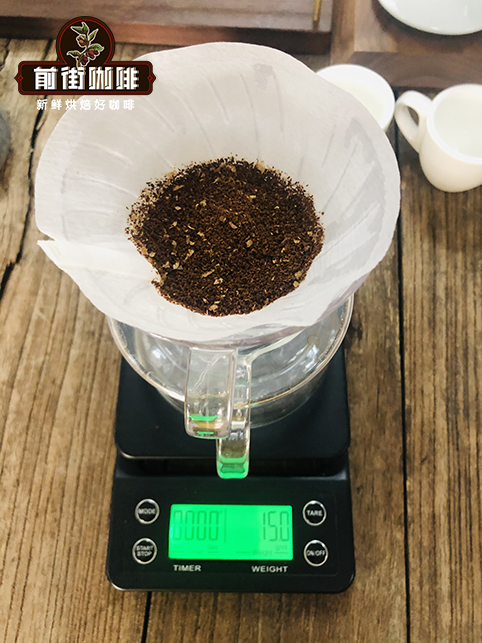
Washing and cooking technique
Qianjie coffee uses staged extraction, also known as three-stage brewing, steaming with 30 grams of water for 30 seconds, small water injection around the circle to 125 grams for stages, water level drop to 225 grams when the powder bed is about to be exposed, remove the filter cup when the water level drop is about to expose the powder bed, (steaming starts timing) the extraction time is 2 grams 3900 ".
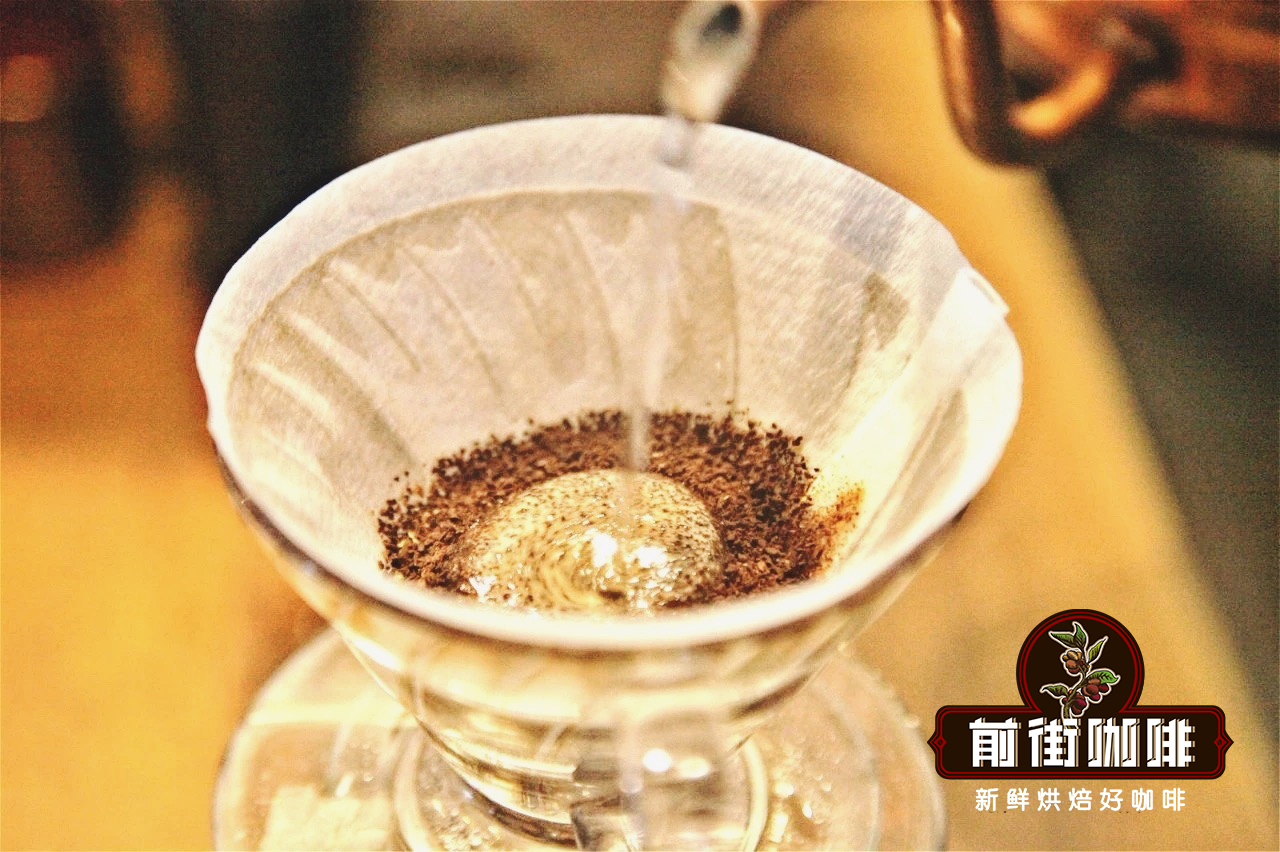
Flavor description
[red standard] there are bright roses, citrus aromas, black rice, berries, apricots, compound fruits, honey, thick juice, rich flavor, sweet and obvious.
[green standard] the imported jasmine is full-bodied and sweet, with citrus, berry, juice, cream, green tea, orange peel and cantaloupe as a whole.
[blue label] the entrance has soft sour notes of lemon and grapefruit, while oolong tea, honey and sucrose come down slightly, making the taste relatively clean and bright.
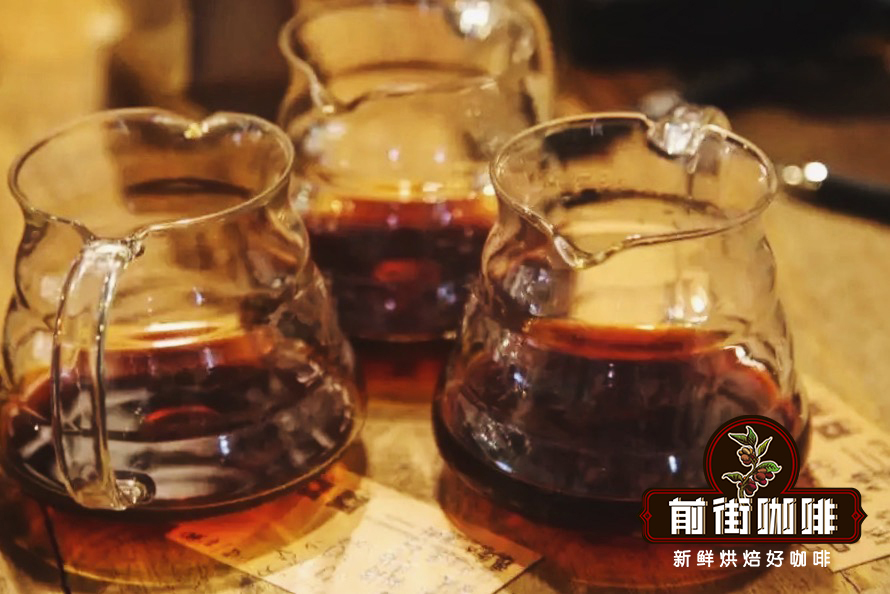
For more boutique coffee beans, please add private Qianjie coffee on Wechat. WeChat account: kaixinguoguo0925
Important Notice :
前街咖啡 FrontStreet Coffee has moved to new addredd:
FrontStreet Coffee Address: 315,Donghua East Road,GuangZhou
Tel:020 38364473
- Prev
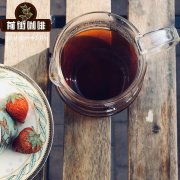
What are the characteristics of cuckoo coffee in Guatemalan coffee producing area
For more information about coffee beans, please follow Coffee Workshop (official Wechat account cafe_style) Coffee production area is located in Alta Verapaz province, 220km outside Guatemala City, which is famous for its unspoiled natural environment and unique microclimate. Alta Verapaz is geographically close to the northern province of Peten, which is Mayan.
- Next
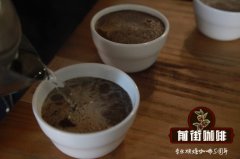
What are the three major coffee brands of Jade Manor in Panama? How about geisha coffee at Jade Manor?
Professional coffee knowledge exchange more coffee bean information Please pay attention to the coffee workshop (Wechat official account cafe_style) Geisha pronunciation is similar to Japanese geisha, so some are also called geisha coffee; because the tree species are taller than ordinary coffee trees, they were originally planted in a small area of the manor and were used as windbreaks. And the son of the manor owner, in order to attend the annual Panama,
Related
- Detailed explanation of Jadeite planting Land in Panamanian Jadeite Manor introduction to the grading system of Jadeite competitive bidding, Red bid, Green bid and Rose Summer
- Story of Coffee planting in Brenka region of Costa Rica Stonehenge Manor anaerobic heavy honey treatment of flavor mouth
- What's on the barrel of Blue Mountain Coffee beans?
- Can American coffee also pull flowers? How to use hot American style to pull out a good-looking pattern?
- Can you make a cold extract with coffee beans? What is the right proportion for cold-extracted coffee formula?
- Indonesian PWN Gold Mandrine Coffee Origin Features Flavor How to Chong? Mandolin coffee is American.
- A brief introduction to the flavor characteristics of Brazilian yellow bourbon coffee beans
- What is the effect of different water quality on the flavor of cold-extracted coffee? What kind of water is best for brewing coffee?
- Why do you think of Rose Summer whenever you mention Panamanian coffee?
- Introduction to the characteristics of authentic blue mountain coffee bean producing areas? What is the CIB Coffee Authority in Jamaica?

